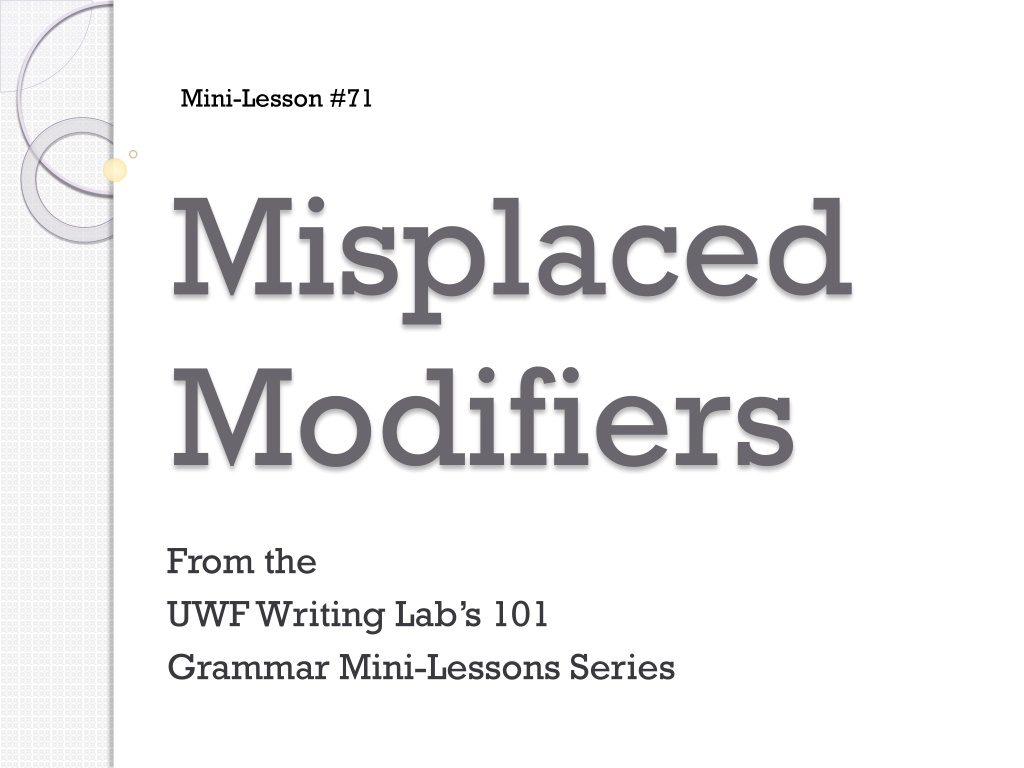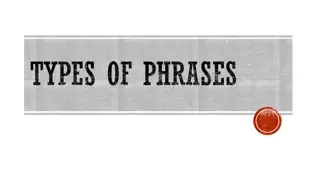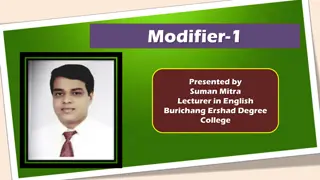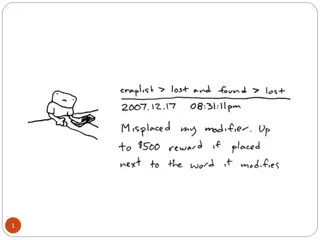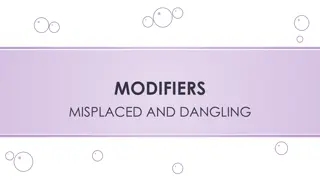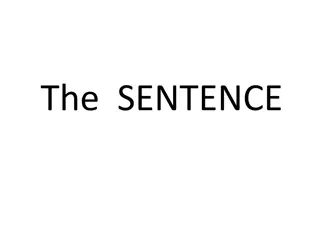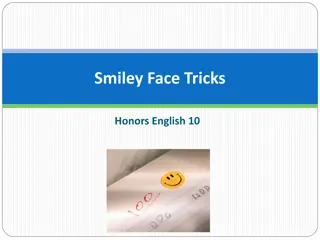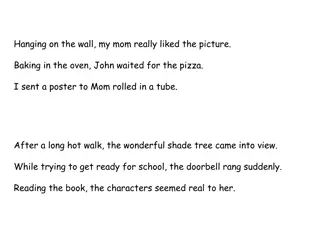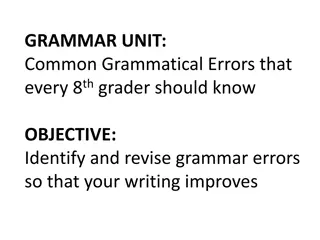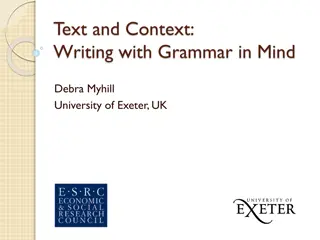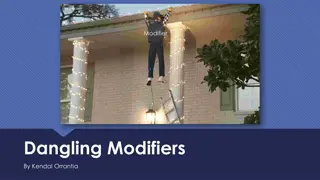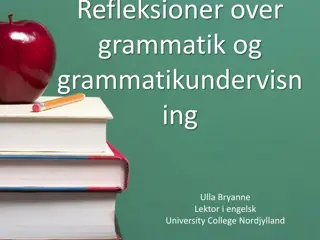Misplaced Modifiers in Grammar
Misplaced modifiers can lead to confusion in writing. Learn how to correctly position adjectives, adverbs, phrases, and clauses to ensure clear and effective communication in your sentences. Avoid common errors like split infinitives and squinting modifiers for improved writing quality.
Download Presentation

Please find below an Image/Link to download the presentation.
The content on the website is provided AS IS for your information and personal use only. It may not be sold, licensed, or shared on other websites without obtaining consent from the author.If you encounter any issues during the download, it is possible that the publisher has removed the file from their server.
You are allowed to download the files provided on this website for personal or commercial use, subject to the condition that they are used lawfully. All files are the property of their respective owners.
The content on the website is provided AS IS for your information and personal use only. It may not be sold, licensed, or shared on other websites without obtaining consent from the author.
E N D
Presentation Transcript
Mini-Lesson #71 Misplaced Modifiers From the UWF Writing Lab s 101 Grammar Mini-Lessons Series
The misplaced modifier is placed too close to some other noun or pronoun which it does not intend to modify. An adjective, an adverb, or a phrase or clause used as an adjective or adverb should refer to a specific word in the same sentence and be placed close to it so that the relationship is clear. A modifier is misplaced if intervening words obscure the relationship between it and the word it is intended to modify. A misplaced modifier is confusing because the reader may associate it with the wrong word.
Incorrect: There was a debate on the bill to provide financial aid to homeless persons in the Senate. Whom is the phrase in the Senate describing? Its proximity to homeless persons suggests that these homeless persons are in the Senate; thus, in the Senate is presented as an adjectival phrase describing persons. Place the modifying element next to the word it actually describes. Correct: There was a debate in the Senate on the bill to provide financial aid to homeless persons.
Incorrect: I only need ten more hours to graduate. Do you only need ten more hours to graduate or do you need only ten more hours to graduate? Make sure that adverbs modify the intended adjective, verb, or other adverb. Correct: I need only ten more hours to graduate.
An infinitive is a single grammatical unit which consists of to plus the present form of any verb. Since the infinitive is a single grammatical unit, careful writers frown on splitting the infinitive, that is, placing a modifier (usually an adverb) between the preposition to and the verb. Many authorities discourage the use of the split infinitive; others accept this structure especially if writing the sentence without splitting the infinitive would create an unidiomatic expression. Careful writers use their discretion and if possible try not to split an infinitive.
Split infinitive: Dentists encourage children to regularly brush their teeth. Revised: Dentists encourage children to brush their teeth regularly.
A squinting modifier is one, which, because of its placement in the sentence, seems to be modifying two different words. Squinting: Patty who was walking quickly reached the disco. Revised: Patty, who was walking, reached the disco quickly. Revised: Patty, who was walking quickly, reached the disco.
